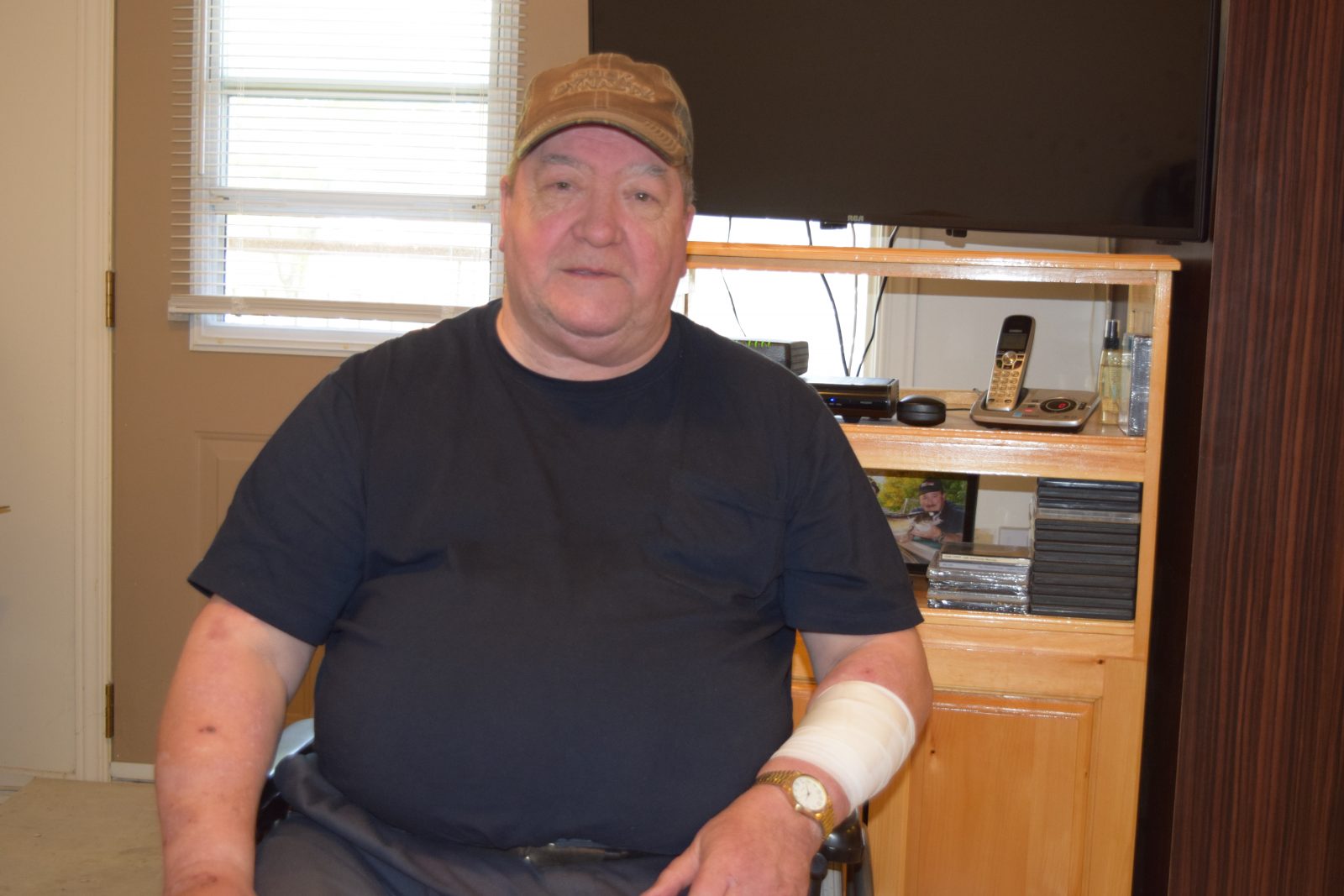CORNWALL, Ontario – Cornwall resident Robert Carriere wants a new electric wheelchair and some answers. Carriere has a bad heart, COPD and has lost a leg. He is confined to a wheelchair, but says that the Champlain Local Area Health Network (LHIN) denied his request for a new electric wheelchair.
Carriere, 70, says that he has not been given a good reason as to why he will not be getting a new chair.
“They say I can do too much, but I’m lost without my chair,” he said.
Carriere currently has an electric wheelchair, but he says that the has had it inspected by paramedics who say that the engine is failing. He does not want to take the risk of being out in his old electric wheelchair and have it fail on him.
“The chair is making a lot of noise,” said Carriere. “All the CCAC would do was buy me two new batteries.”
CCAC, the Community Care Access Centre in Cornwall was taken over by the Champlain LHIN one year ago.
“The Champlain LHIN takes client concerns very seriously,” the LHIN said in an emailed statement to Cornwall Seaway News. “While we do not discuss individual cases out of respect for patient confidentiality, we have a robust process in place to respond to concerns and complaints. More information on our complaints process can be found on our public website.”
The LHIN went on to say that it can only provide equipment under certain circumstances and on a limited basis.
“The LHIN can provide equipment under certain circumstances on a short-term basis to patients receiving LHIN home care services,” the LHIN said. “Eligible patients must be receiving, or have been referred to, at least one professional service, such as nursing, physiotherapy or occupational therapy.”
There are provincial government programs that Carriere has looked into to see if he could get funding for a new chair, but the Ontario Assistive Devices Program only covers 75 percent of the total cost of the device, leaving the patient to pay for the remaining 25 percent. Carriere said that electric wheelchairs cost upwards of $10,000 and that it is too much for him to afford even 25 percent of the cost on his pension.
Carriere says that the chair is an important part of his life as he still tries to remain independent and active. He said that he would use his chair to travel to the clinic when he needed to and that he still likes to go fishing during the summer.



